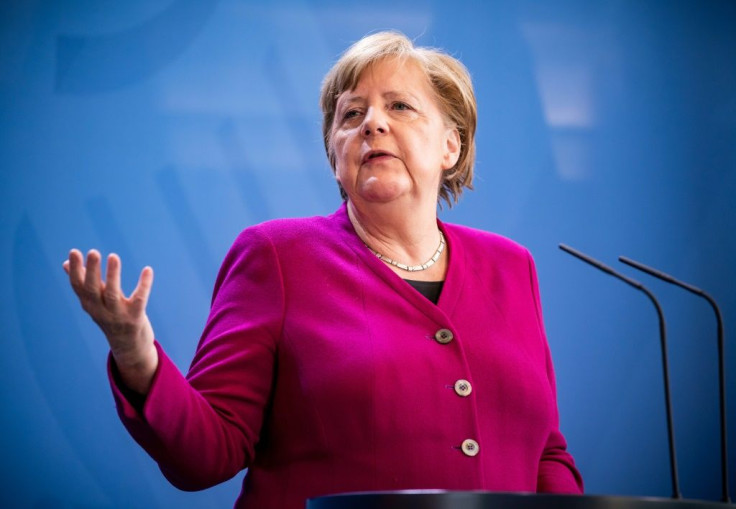Coronavirus Europe: Germany Eases Lockdown With 'Emergency Mechanism' In Place If Cases Surge

German Chancellor Angela Merkel eased Germany’s nationwide lockdown on Wednesday, shifting responsibility to state governments and putting in place an “emergency mechanism” in cases coronavirus cases surge.
“We are following a bold path,” Merkel said. “We can afford to be a bit bold but we must remain cautious.”
Social distancing of at least five feet will continue until June 5, but all shops will be allowed to reopen. Elderly and at-risk groups will be given "special attention."
Germany’s football season will be allowed to resume “in the second half of May” while schools would gradually be reopened, with emergency care expanded for younger students.
Each of Germany’s 16 state governments will decide when bars, restaurants, clubs, amusement parks and other public venues are allowed to reopen. Lockdown measures were first imposed in mid-March.
As part of relaxing social distancing measures, the country would adhere to an “emergency mechanism” where restrictions would be reintroduced in certain areas if there are more than 50 new infections per 100,000 inhabitants within seven days.
Although Germany has had a relatively high number of cases, the country has not had as many deaths as other hotspots in Europe, such as Italy or Spain. An oversupply of hospital beds and widespread testing are key in Germany’s response to the virus.
Other European nations are also taking next steps in their battle against the virus, with Dutch Prime Minister Mark Rutte on Wednesday unveiling a four-month plan to loosen restrictions in the Netherlands. Lawmakers in Spanish parliament voted to extend Spain's state of emergency, which was first announced on March 14.
As of 5:15 p.m. ET, there are 3,732,046 COVID-19 cases of the virus, with the global death toll standing at 261,517.
© Copyright IBTimes 2024. All rights reserved.





















